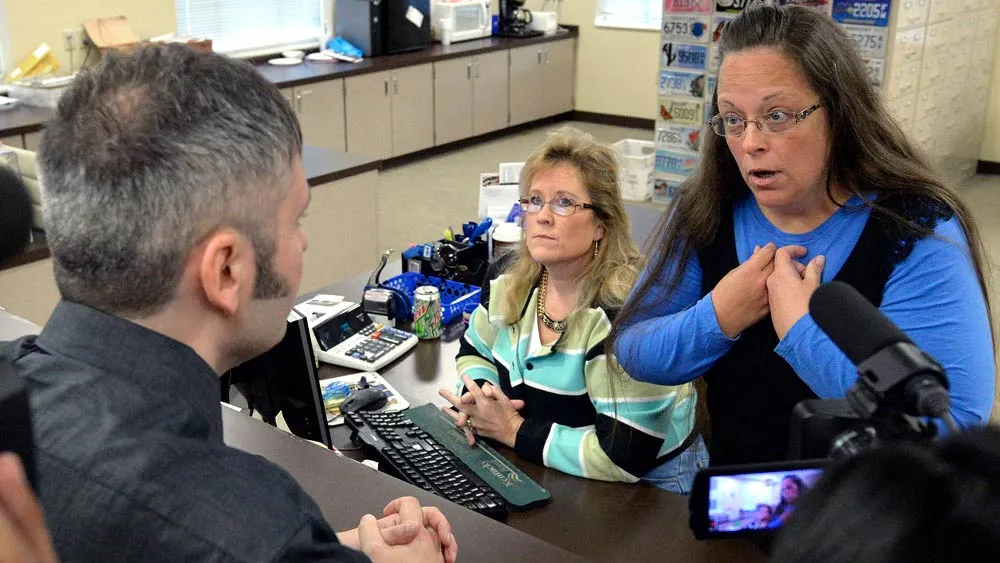August 11, 2014
Nepal Gay Community Parades for Same-Sex Marriage
Bobby McGuire READ TIME: 3 MIN.
KATMANDU, Nepal -- Tooting horns and ringing chimes, hundreds of lesbians, gays, bisexuals and transvestites paraded through Nepal's capital Monday for a colorful celebration of Gaijatra, a Hindu festival to remember the dead that is gleefully overtaken each year by the country's gay community.
In this socially conservative Hindu-majority nation, the festival was traditionally the only day people felt free to cross-dress. But social norms are changing fast as this fledgling Himalayan democracy emerges from centuries of religious monarchy.
A government committee is recommending same-sex marriage be guaranteed in a new constitution - an unprecedented move that would give gay and lesbian couples the right to adopt, buy joint property, open joint bank accounts and inherit from one another. All of the country's political parties have already backed the idea, and many within the small gay community hope the new constitution can be passed this year.
"When we gather again next year, we hope we are able celebrate the new law," said 28-year-old Bipin Lamichane, who wants to marry the partner he has lived with for five years. But changing laws may be easier than changing minds in a country where arranged marriage is still the norm, and up to a decade ago homosexuals were routinely jailed for up to three months on accusations of "unnatural sex."
"Sometimes even if we get laws in writing there is a big problem of implementation," Lamichane said. "There is still more that needs done."
Bhakti Shah, who was fired from the army in 2007 when officers suspected her relationship with another enlisted woman, is still hiding their partnership from landlords and neighbors.
"People still think we are two friends or sisters sharing an apartment," Shah said. "How can we tell everyone we are a couple when we don't have anything in paper to back it?"
New legal rights and status would give Shah and others the documentation they need to prove a union. Hindu priest Laxman Acharya said he expected most Nepalese to accept the change, given their cultural diversity and youth; the median age in Nepal is 21, and some 35 percent of the 27.5 million population is 14 or younger.
"It is not going to dent the culture or religion," Acharya said at his temple in the mountainous capital. "If two people are happy then no one should say anything."
Thousands of people lined the narrow, cobblestoned streets of Katmandu's old city to watch those parading with rainbow-colored balloons and banners along the 1-kilometer (half-mile) route, from the tourist hub of Thamel to the city's central square.
Some of the revelers wore the traditional dress of their ethnic communities. Many others were painted in makeup and wearing cross dress.
And some on the sidelines disapproved.
"Whatever happens inside closed doors should remain there," said retired government worker Raja Sharma, 62. "This is ridiculous, marriage is a sacred thing between a husband and wife that has worked for centuries, and it should be left alone. Nepal has enough problems."
Still struggling with poverty, unemployment and poor infrastructure, Nepal has leapt forward in granting rights to gays and minorities, becoming the first South Asian nation to decriminalize homosexuality in 2007 as the country embraced democracy and secularism following centuries as a Hindu kingdom.
"We have come a long way, but it is time we finally legalize same-sex marriage," said Monica Jha, who heads the Blue Diamond Society credited with organizing rallies and lobbying political parties for the change. The group's founder became Nepal's first openly gay legislator, while the group has also opened a travel agency for gay tourists advertizing wedding and honeymoon packages on Mount Everest, the world's tallest peak.
Analysts said Nepal's gay community was among the first groups to demand recognition, along with the country's ethnic minorities, when autocratic rule transitioned to democracy.
"These groups were finally able to voice their demands and concerns," said Keshab Poudel, editor of Spotlight magazine. "Nepal is mostly a liberal society, and people are able to absorb and digest new values with ease."
In 2007, gay rights activists won legal case with the country's Supreme Court ordering the scrapping all laws that decriminalized homosexuality and discriminated on the basis of sexual identity.
"Gay rights activists were able to achieve without much political support. It was all because of their advocacy and activism," said Kapil Shrestha, a political science professor at Tribhuwan University in Katmandu.
While Nepal's political parties have said they agree same-sex marriage should be legal, it is unclear when they might agree and vote on the overall constitution after years of failing to do so amid political bickering. Prime Minister Sushil Koirala has promised to finish the work this year.


